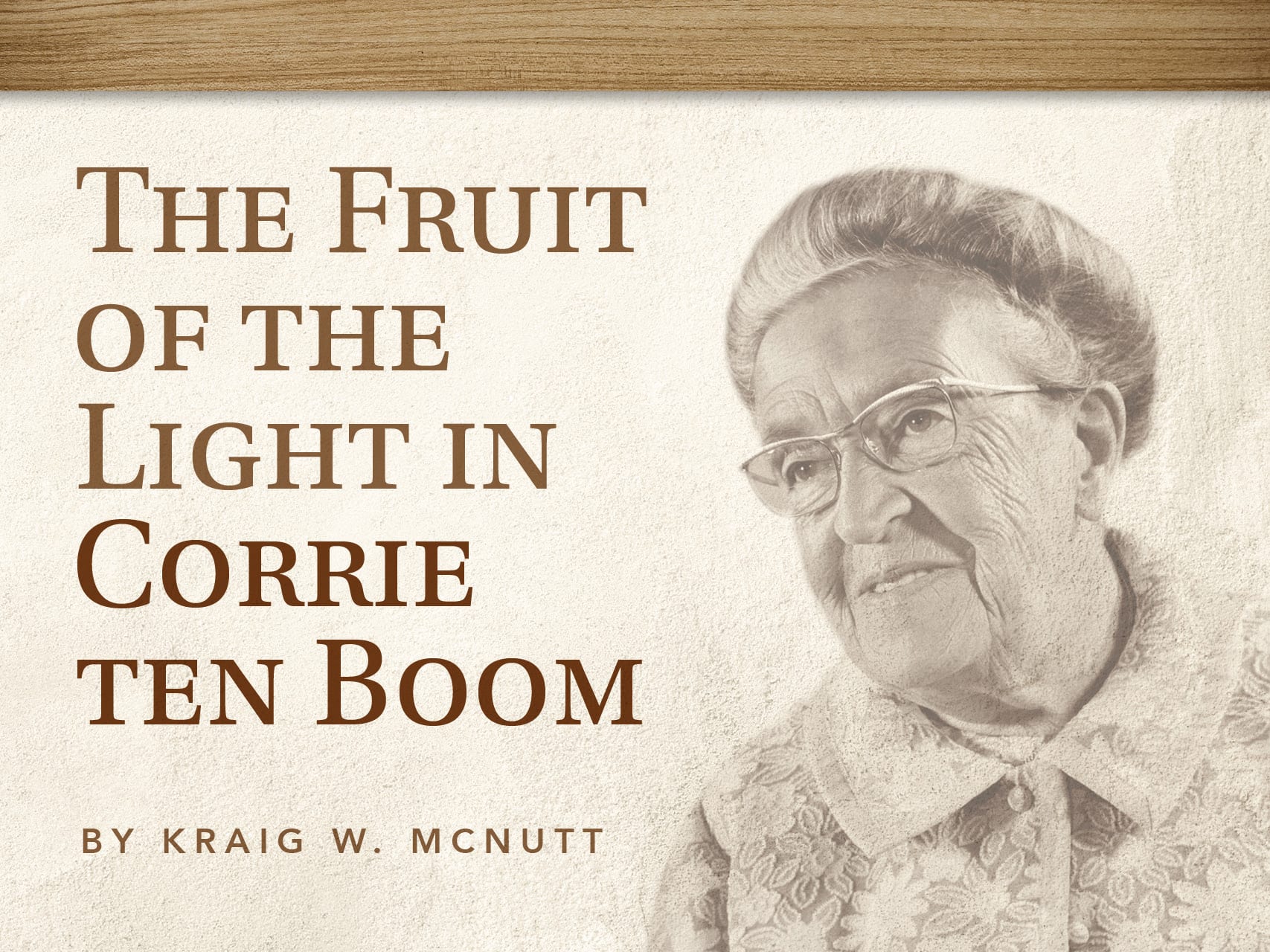The Fruit of the Light in Corrie Ten Boom

As we see in the article “Engaging Wisely with Outsiders to the Faith” in this issue, we are light in the Lord, and so Paul exhorts us to “live like children of light—for the fruit of the light consists in all goodness, righteousness, and truth” (Eph 5:8–9 NET). The way we live and relate to others, especially to those who are outsiders to the faith, becomes an invitation to witness our example of new life.
“Prof” Howard Hendricks, former DTS professor of Bible exposition, was fond of saying, “You cannot impart what you do not possess.” We can’t expect to affect the lives of outsiders for the sake of the gospel if we don’t allow God’s word to influence our lives. One person whose life displayed the fruit of the light was Corrie ten Boom. She beautifully modeled wise engagement with outsiders to the faith.
Corrie ten Boom’s life (1892–1983) demonstrated the fruit of the light and pointed to the true light of the world. She grew up in a Dutch Calvinist home that enthusiastically pursued compassion for others. In her twenties, she started youth clubs that served people with intellectual disabilities. Her parents also helped board children of Dutch missionaries to Indonesia.
In 1940, Nazis raided homes, confiscated personal property, and displaced thousands of Holland’s Jews. It was then that Corrie’s father built a secret room—a hiding place—next to Corrie’s bedroom. This small closet could hide six people standing up inside it. The ten Booms used their home to provide shelter for Jews and others who sought protection from Nazi persecution.
Four years later, local police suspected that the ten Boom house in Haarlem was being used to harbor members of the Dutch underground resistance, as well as Jews—as, in fact, it was. The constant activity in and around the home resulted in a raid by the Nazis, following up on information from a Dutch neighbor, Jan Vogel, who betrayed the ten Boom family. Though the Jews in the hiding place were not discovered, the Nazis arrested several people, including most of the ten Boom family.
Corrie’s father died at the hands of his perpetrators within days of the arrest; Corrie and her sister Betsie were eventually sent to the Nazi concentration camp Ravensbrück in Germany. At Ravensbrück, Betsie died of starvation. Not long after the death of her dear sister, Corrie was miraculously released due to a clerical error. Had she stayed another week at Ravensbrück, Corrie would have been killed in the crematorium, with all the other women in her group.
Corrie returned to Holland. At first, she harbored great hatred toward Jan Vogel, the neighbor who had betrayed her family by providing information to the Nazi authorities. But the Lord convicted Corrie of this hatred, and she repented. She wrote Vogel a letter and sent him a New Testament after she learned that he was sentenced to death. She told him she forgave him. He replied: “That you could forgive me is such a great miracle that I have said, ‘Jesus, when you give such love in the heart of your followers, there is hope for me.’”¹
When we live as children of light, the way we live invites outsiders to the faith to experience the new life found in Christ. May they see in our lives examples of goodness, righteousness, and truth.
¹ Robert Fernandez, Corrie ten Boom: A Faith Undefeated (Herald Entertainment, 2013).
About the Contributors

Kraig W. McNutt
Kraig McNutt is Executive Director of Marketing & Communications for DTS. He studied philosophy at Indiana University (BA) and holds degrees from the University of Kentucky (MSLS) and Grace Theological Seminary (MDiv). He is also an author and historian on the American Civil War.

